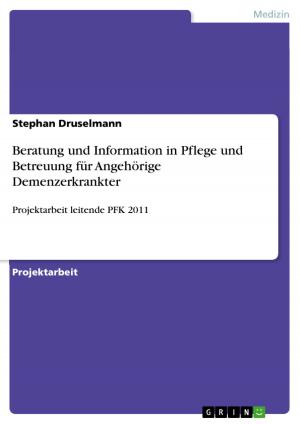How has Fianna Fail adapted to changes in Irish society since 1945?
Nonfiction, Social & Cultural Studies, Political Science| Author: | Thorsten Volberg | ISBN: | 9783638323598 |
| Publisher: | GRIN Verlag | Publication: | November 9, 2004 |
| Imprint: | GRIN Verlag | Language: | English |
| Author: | Thorsten Volberg |
| ISBN: | 9783638323598 |
| Publisher: | GRIN Verlag |
| Publication: | November 9, 2004 |
| Imprint: | GRIN Verlag |
| Language: | English |
Seminar paper from the year 2001 in the subject Politics - International Politics - Region: Western Europe, grade: 1,0 (A), Queen's University Belfast (School of Politics), course: HS: Irish Politics, 19 entries in the bibliography, language: English, abstract: Irish society has changed more in the last three decades leading up to the 21st century than in the whole of the previous one hundred years, going back to the mid nineteenth century. A poor and rural, deeply conservative and Roman Catholic country has become urbanised, industrialised, and one of the leading economies in Europe. This process of economic growth and social transformation, together with the establishment of a free republican and democratic order, has made a much more modern nation out of a country where the 'primitive hatred of government' had a very long tradition. The rapid expansion of educational opportunities in Ireland has produced a large middle class, the opportunities for women have increased and political and social changes have led to a more open, pluralistic nation. The acceptance of views and behaviour patterns, which are often not in line with the dominant religious orthodoxy or political objective are another great achievement of this society. Still this country went through serious economic difficulties, high rates of unemployment and inflation. Poverty has been produced by economic change and the gap between the younger, better educated, who benefit directly from economic modernisation and those with unequal access to quality education is visible in some areas. The changes in Irish society in the last half-century will be discussed with a main focus relaying on the influence of the Catholic church, the Northern Ireland Issue in the Republic and the role of the women in society and politics. The recognition of prejudice and the under-representation of women in electoral politics is suppose to offer an understanding of the 'nature of power and how it is distributed in a society'. Finally the question of how Fianna Fail, Irelands most successful political party, which influenced Irish history like no other party since the country's foundation, adapted to these changes. A regular comparison with the social development in Northern Ireland will complete the topic.
Seminar paper from the year 2001 in the subject Politics - International Politics - Region: Western Europe, grade: 1,0 (A), Queen's University Belfast (School of Politics), course: HS: Irish Politics, 19 entries in the bibliography, language: English, abstract: Irish society has changed more in the last three decades leading up to the 21st century than in the whole of the previous one hundred years, going back to the mid nineteenth century. A poor and rural, deeply conservative and Roman Catholic country has become urbanised, industrialised, and one of the leading economies in Europe. This process of economic growth and social transformation, together with the establishment of a free republican and democratic order, has made a much more modern nation out of a country where the 'primitive hatred of government' had a very long tradition. The rapid expansion of educational opportunities in Ireland has produced a large middle class, the opportunities for women have increased and political and social changes have led to a more open, pluralistic nation. The acceptance of views and behaviour patterns, which are often not in line with the dominant religious orthodoxy or political objective are another great achievement of this society. Still this country went through serious economic difficulties, high rates of unemployment and inflation. Poverty has been produced by economic change and the gap between the younger, better educated, who benefit directly from economic modernisation and those with unequal access to quality education is visible in some areas. The changes in Irish society in the last half-century will be discussed with a main focus relaying on the influence of the Catholic church, the Northern Ireland Issue in the Republic and the role of the women in society and politics. The recognition of prejudice and the under-representation of women in electoral politics is suppose to offer an understanding of the 'nature of power and how it is distributed in a society'. Finally the question of how Fianna Fail, Irelands most successful political party, which influenced Irish history like no other party since the country's foundation, adapted to these changes. A regular comparison with the social development in Northern Ireland will complete the topic.















